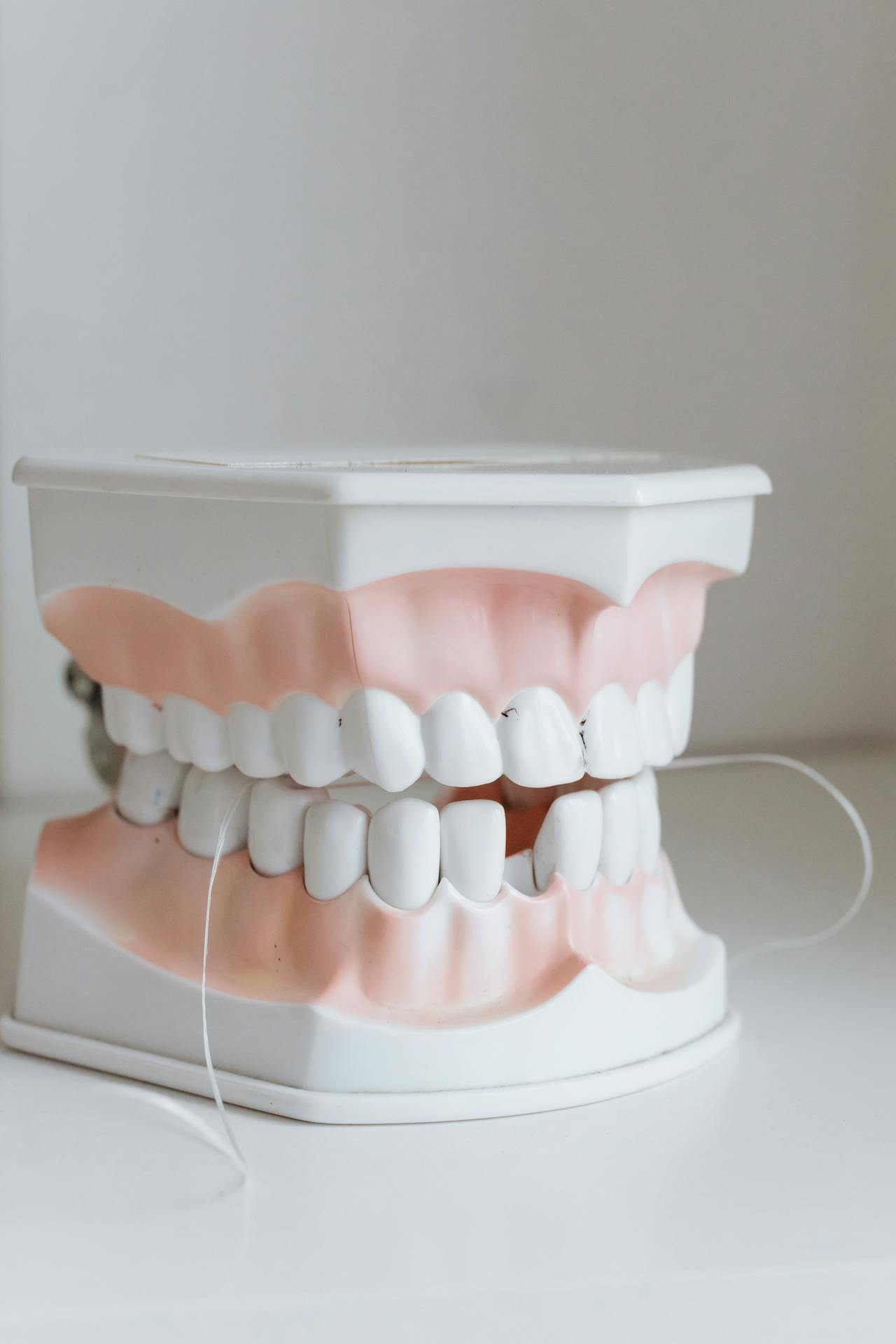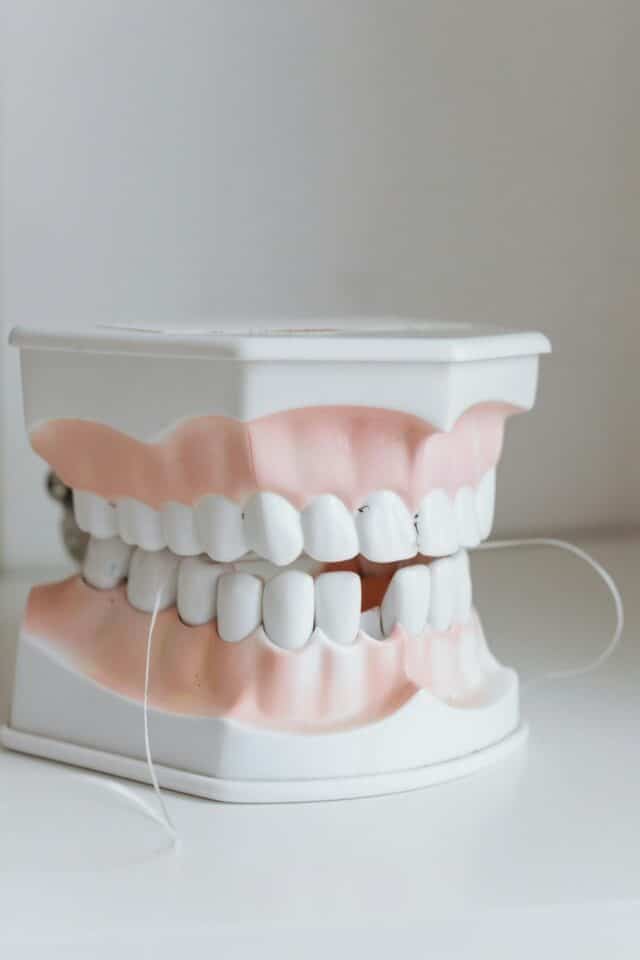
Tooth loss can occur for various reasons, from cavities to injuries. People often turn to dental prosthetics, such as dentures, to replace missing teeth.
Two popular options are hybrid dentures and overdentures. While both provide tooth replacement solutions, they differ in terms of design, functionality, and maintenance. Understanding these differences can help individuals make more informed decisions when considering their denture options.
In this blog, we’ll explore the key distinctions between hybrid dentures and overdentures, highlighting their benefits, challenges, and which option might best suit your needs.
What Are Hybrid Dentures?
Unlike traditional dentures that rest on the gums, hybrid dentures are secured to dental implants surgically placed into the jawbone. These dentures typically use four to six implants for a secure fit, offering a stable and comfortable alternative to removable dentures. Hybrid dentures are a permanent solution for those missing multiple teeth.
One of the advantages of hybrid dentures is that they combine the benefits of both fixed bridges and dentures. They look and feel like natural teeth while being firmly attached, eliminating the need for adhesives. Additionally, hybrid dentures can help maintain jawbone health by stimulating the bone through the implants, reducing the risk of bone loss over time.
Different Types of Hybrid Dentures
There are several types of hybrid dentures, each designed to meet specific needs based on your oral structure and lifestyle. Some examples are:
Bar-Retained Hybrid Dentures
These use a metal bar attached to dental implants, which supports the denture. This bar provides additional stability and distributes pressure evenly across the implants. As a result, bar-retained dentures offer improved comfort and durability.
Ball-Retained Hybrid Dentures
These feature small metal balls attached to the dental implants. These balls fit into corresponding sockets on the denture, creating a secure connection. The ball-retained system provides a high level of stability and allows for easier maintenance since patients can easily insert and remove the denture as needed.
Locator-Retained Hybrid Dentures
These use a magnetic system that connects the denture to the implants. The locators, which are magnets attached to the implants, align with magnetic elements in the denture. This system offers a flexible yet secure fit, making it convenient for those who want the option of easy removal without sacrificing stability during daily activities.
What Are Overdentures?
Overdentures are also designed to replace missing teeth, but they function differently. These dentures sit on top of the gums but are supported by dental implants or the patient’s remaining natural teeth. The key difference between hybrid dentures and overdentures is that the patient can remove the latter for cleaning or maintenance.
Implant-supported overdentures usually use two or more implants, which help anchor the denture and provide greater stability than traditional dentures. Overdentures are an excellent option for patients who still have some natural teeth or those who prefer a removable solution.
Key Differences Between Hybrid Dentures vs. Overdentures
When deciding between hybrid dentures vs. overdentures, understanding the differences in comfort, maintenance, and long-term functionality can be helpful.
Implant Attachment
Hybrid dentures are permanently attached to dental implants, providing a more secure fit. They are not removable, meaning you don’t have to worry about them shifting or coming loose once they’re in place. Overdentures, on the other hand, rest on top of the gums and can be removed for cleaning.
Stability
One of the most significant advantages of hybrid dentures is their stability. As mentioned, the implants securely hold the denture in place without needing adhesives, giving you more confidence when eating, speaking, and smiling. Overdentures, while more stable than traditional dentures, may still have some movement since they are not permanently fixed.
Comfort and Fit
Hybrid dentures tend to offer a more natural feel because they don’t press on the gums. The pressure is distributed through the implants rather than the soft tissues, making them more comfortable over time. Overdentures may cause gum irritation, particularly if the fit isn’t perfect or the gums shift due to bone loss.
Cleaning and Maintenance
Overdentures are easy to remove for cleaning, which can be more convenient for some patients. However, hybrid dentures, being fixed, require professional cleanings similar to how you would care for natural teeth with regular dental visits.
Bone Loss Prevention
Both options help prevent bone loss because of dental implants, but hybrid dentures tend to be more effective at preserving bone density since they stimulate the jawbone continuously. Overdentures still offer some protection but do not engage the bone as effectively as hybrid dentures.
Pros and Cons of Hybrid Dentures
Pros:
- Stability: Hybrid dentures are highly stable due to their fixed nature. They won’t slip or shift, allowing you to eat and speak confidently.
- Comfort: The pressure is on the implants, not the gums, leading to greater comfort.
- Aesthetic Appeal: These dentures mimic the appearance of natural teeth, providing a more lifelike look.
- Bone Health: By integrating with dental implants, they help maintain bone density and prevent bone resorption.
Cons:
- Cost: Hybrid dentures tend to be more expensive because of the custom-made prosthetics.
- Surgical Requirement: Placing the implants requires oral surgery, which involves a recovery period.
- Maintenance: Professional cleanings are required, which may inconvenience some patients.
Pros and Cons of Overdentures
Pros:
- Removability: Overdentures are easy to remove, allowing for straightforward cleaning and maintenance.
- Less Expensive: Overdentures are generally more affordable than hybrid dentures because they require fewer implants.
- Partial Retention of Natural Teeth: Overdentures can work with natural teeth, if any remain, reducing the need for full dental implants.
Cons:
- Stability: Even with implants, overdentures may shift or move slightly, especially after extended use.
- Gum Irritation: Over time, the denture may cause discomfort or soreness on the gums due to pressure.
- Bone Loss Risk: Overdentures don’t stimulate the jawbone as effectively as hybrid dentures, which can lead to gradual bone loss.
Which Is Right for You?
Deciding between hybrid dentures vs. overdentures depends on your specific needs, lifestyle, and budget. Hybrid dentures offer a more permanent and stable solution, making them ideal for those who value comfort and functionality. On the other hand, overdentures provide flexibility and affordability.
It’s essential to consult with a dental professional to assess your needs and determine which option will best suit your situation.
Archpoint Implant Dentistry: Your Trusted Partner in Oral Health
Whether considering hybrid dentures or overdentures, working with a trusted dental provider is crucial to achieving the best outcome. Archpoint Implant Dentistry specializes in dental implant procedures and offers tailored guidance to help you make the right decision for your oral health.
Ready to restore your smile and improve your quality of life? Contact Archpoint Implant Dentistry today to book an appointment and explore your options. Your journey to a confident, healthy smile starts here!








